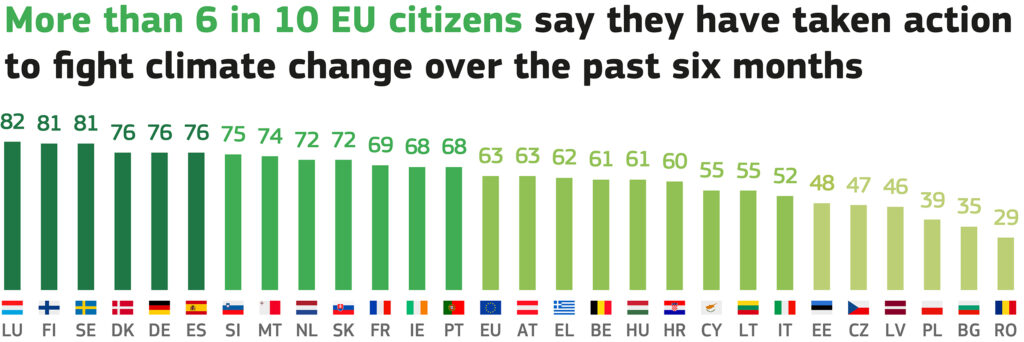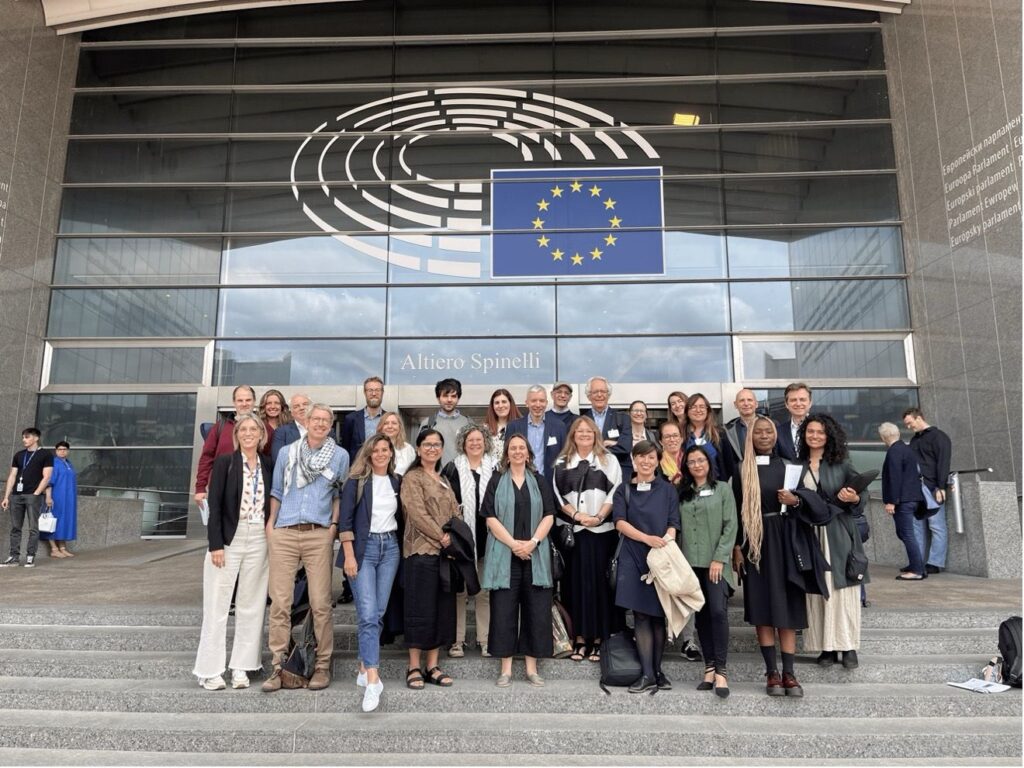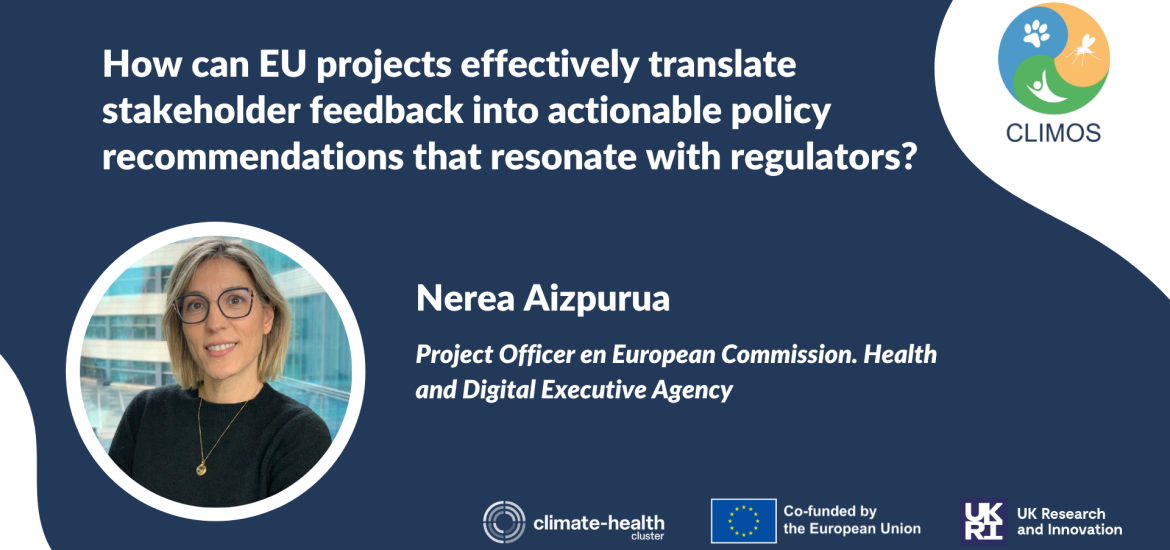In a recent webinar organised by the CLIMOS project, leading voices from four EU-funded projects were brought together to discuss the role of stakeholder engagement in driving successful climate and health initiatives.
Nerea Aizpurua, CLIMOS’ Project Officer at the European Commission’s Health and Digital Executive Agency (HADEA), delivered a keynote emphasising the importance of effective stakeholder engagement for the European Commission. She highlighted the benefit of synergies such as the one developed by the portfolio of Greentech projects run by F6S in collaboration with other partners, with 22 projects and a budget of approximately €150 million.
During the Q&A, there was a question from the audience that we want to bring forward:
How can EU projects effectively translate stakeholder feedback into actionable policy recommendations that resonate with regulators?
We reached out to Nerea Aizpurua and she provided two examples that she finds useful in practice.
- Reply to Official ‘Calls for Evidence’
The European Commission often asks for public input on new or existing policies through ‘Calls for Evidence’ on their ‘Have Your Say’ portal. This is a direct way for our project’s findings and stakeholder feedback to shape future EU laws.
- Why it works: It’s your earliest formal chance to influence policy.
- How: Keep an eye on the ‘Have Your Say’ portal. When a relevant call appears, summarize your project’s evidence and stakeholder insights clearly, focusing on how they solve real problems.
- Example (Open Now!):
- Public Consultation on Towards a circular, regenerative and competitive bioeconomy . This initiative aims to offer solutions for a circular and climate neutral economy, boosting the EU’s prosperity and competitiveness within planetary boundaries.
- Link: Towards a circular, regenerative and competitive bioeconomy

- Engage Directly with Policymakers
Beyond formal calls, build relationships and share your message directly with the people who make decisions.
- Who to target:
- MEPs (Members of the European Parliament): They help create and vote on laws.
- European Commission: They propose the laws.
- National Governments: They implement EU laws.
- How to engage:
- Short Policy Briefs: Create brief, clear summaries (1-2 pages) of your findings and what you recommend.
- Organise Sessions: Host events or briefings. For example, a session at the European Parliament for MEPs and their staff. This creates a direct, informal way to share your knowledge.
- Example of event: “Protecting Health in a Changing Climate” Event with MEP Vytenis Povilas Andriukaitis
A recent high-level roundtable event held at the European Parliament, co-hosted by MEP Vytenis Povilas Andriukaitis. It brought together researchers and policymakers to discuss how EU climate policy can better safeguard human health. The event explicitly focused on the health impacts of climate change, including extreme heat, floods, vector-borne diseases, and the vulnerability of specific populations. It emphasized the need for integrated climate and health policies. Took place on June 3, 2025. While it’s a past event, the discussions and recommendations are highly relevant and influential for future policy work.
European Climate and Health Cluster event page: https://climate-health.eu/2025/06/10/protecting-health-in-a-changing-climate-2/

